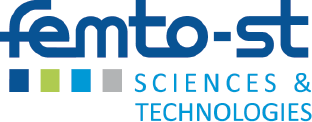Innovation through
Physics and Engineering
Innovation through Physics and Engineering
Innovation through
Physics and Engineering
Innovation through Physics and Engineering
EE is an EIPHI graduate School Master focusing on Research & Innovation in the field of Energy production and storage and management. Electrical energy is the main concern of this degree with a focus on hydrogen energy systems.
Like all the Master Degree of EIPHI Graduate school, this master is designed for R&D engineer positions in big international companies or smaller High-Tech industries but can also be the springboard for a career as Researcher or Professor.
Energy Master Students can pursue their studies with a Ph.D. in the Energy Department of Femto-St Research Lab or Belfort’s Fuel Cell Laboratory FC Lab presented thereafter.
The EE master’s program takes place over 2 academic years divided into 4 semesters. Each semester corresponds to an accreditation of 30 ECTS, which leads to a total at the end of 120 ECTS. The program has an extensive international flavor, with all courses taught in English. The teaching staff are highly qualified researchers with international recognition.























Research Internship – 30 ECTS


Career paths
The program targets careers such as:
A degree equivalent to or higher than a Bachelor’s degree (3 or 4 years degree) in Electrical or Engineering Science for the Electrical Engineering track.
Many scholarships will be awarded each year to high quality foreign students.
Contact: David Bouquain